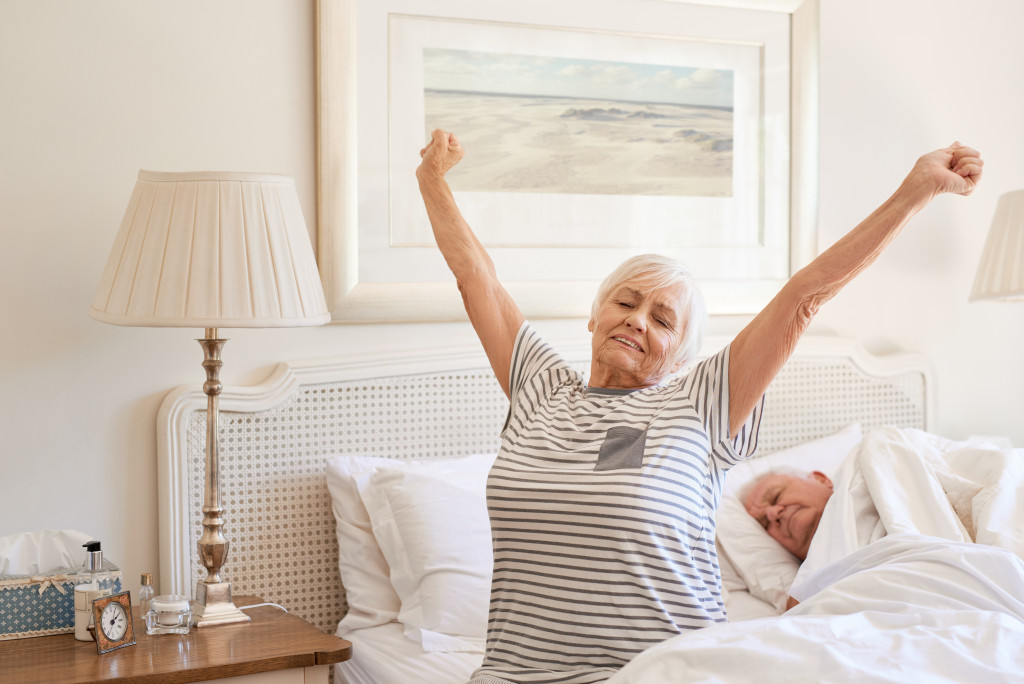Health and fitness are important facets of human life, and as our bodies age, the need to stay as healthy as possible grows. Senior citizens need double the attention on their health as health can decline quicker once they get to a certain age. From chronic pains and aches in different areas of their body to mental deterioration, senior citizens are more at risk the older they get as their different body systems get weaker with every passing year. But that is not to say they cannot be helped.
Incorporating a form of exercise into a senior citizen’s daily routine can help them stay healthy for longer. This can also boost their physical and mental health, as seniors face unique problems that can make them feel lonely or isolated. It could also be a good way to bond with them and make them feel like they are truly cared for. Here are some safe ways to add an element of fitness to a senior citizen’s routine.
1. Mind the food they eat.
If your senior citizen lives with you at home, it is easier to monitor what goes into their body. A major factor of making one’s physical disposition better is being more careful about the daily diet, and senior citizens are no exception to this rule. Some seniors have more specific dietary needs, and it is important to consult a professional to improve their food intake. Different areas can cater to inquiries, but urgent care centers are a good place to ask.
Certain foods and portions can have vastly different effects on an older body compared to the body of a middle-aged person or a teenager. Someone at thirty can handle a larger portion of heavy food, like meats and carbs, but someone older will have a harder time digesting all of that and might have stomach problems. Encourage food that’s rich in nutrients, and be mindful of any allergies or food that might conflict with maintenance medications.
2. Ease them into a fitness activity that isn’t too taxing on them.

For this point, consult a professional health practitioner to minimize the risk of accidents happening. Think of two things: the amount of physical activity they can handle and what they most likely enjoy. Just because they have to exercise does not mean they can’t have fun while doing it; having fun has no age limit, after all. Ask them for their opinion, and make them feel included.
Good activities to consider are taking them on a light stroll at a park or doing some stretches together in the morning. Walking will help them keep their body in motion and get them some fresh air, and your company will ensure that they are safe and have someone to talk to as they take in the views on your walk. Doing some light stretching in the morning can help make their joints stronger and ease any discomfort building up in their muscles. A senior citizen’s body is built differently, so don’t expect them to be able to do anything too strenuous.
3. Take the time to exercise their mind, as well.
Fitness does not only end with the body. Senior citizens are at higher risk for developing Alzheimer’s, dementia, and overall deterioration of their mental state. Help keep them sharp by engaging them in activities that can stimulate their minds, like crossword puzzles, a game of chess, or simply talking to them. Simple games can help them retain information for longer and keep them entertained without straining their eyes or mind too much. Conversation encourages them to train their memory as they recall past events and share life stories.
Exercising the mind is important because this helps older folks keep a longer grasp on their facilities. Being confronted with the fact that your mind is getting weaker can be very scary and uncomfortable, so engaging them in these kinds of activities can reassure them and serve the purpose of keeping them mentally stable. If they’re particularly interested in something more hands-on, you can offer to sit with them as they paint or put together a jigsaw puzzle. Anything that can help them stimulate the mind is good.
Geriatric care and fitness can be hard to keep track of, but as long as you are armed with knowledge from qualified health professionals and the general sense of wanting to care for them, you will do a good job. Make sure to keep your senior citizen’s best interests and well-being at the top of your priorities.
